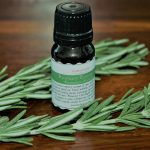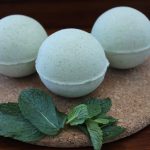Safe Sun Exposure
Safe sun exposure is essential for optimal health, but incorrect exposure can raise your risk of skin disease and bad aspect while not providing any health benefits.
The sun’s rays make us feel good, and in the short term, make us look good. Exposure to sun causes most of the wrinkles and age spots on our faces.
Please consider this:
We often associate a glowing complexion with good health, but skin color obtained from being in the sun or in a tanning booth actually accelerates the effects of aging and increases your risk for developing skin sickness.
Sun exposure causes most of the skin changes that we think of as a normal part of aging. Over time, the sun’s ultraviolet (UV) light damages the fibers in the skin called elastin. When these fibers break down, the skin begins to sag, stretch, and lose its ability to go back into place after stretching. The skin also bruises and tears more easily taking longer to heal. So while sun damage to the skin may not be apparent when you’re young, it will definitely show later in life.
How Can I Help Prevent Skin Problems?
It is difficult to undo sun damage, although the skin can somewhat repair itself, especially with on-going sun protection. So, it’s never too late to begin protecting yourself from the sun. Your skin does change with age for example, you sweat less and your skin can take longer to heal, but you can delay these changes by staying out of the sun. Follow these tips to help prevent skin problems:
1.Drink plenty of water
Even with a small amount of dehydration, your body functions in a less optimal way. The instant you’re dehydrated, it will take a toll on your skin, causing it to look dull, flaky, saggy and loose.
2.Apply ethical ingredients sunscreen with a sun protection factor (In UAE during summer high SPF recommended) or greater (for UVB protection) and zinc oxide (for UVA protection) 20 minutes before sun exposure and every 3 hours thereafter, more if you are sweating or swimming.
3.Select clothing, cosmetic products, and contact lenses that offer UV protection.
4.Wear sunglasses with total UV protection and a wide-brimmed hat to shade your face and neck.
5.Limit your sun exposure.
Small amounts of daily sun produce vitamin D and are beneficial, but too much sun will damage your skin. Avoid direct sun exposure as much as possible during peak UV radiation hours (between 10:00 a.m. and 3:00 p.m.).
6.Eat foods with antioxidants.
Antioxidants are the best resources your body has to fight disease and aging by reducing damage and inflammation. Inflammation is a leading cause of wrinkle formation.
Citrus fruits (lemons, limes, oranges and grapefruits) are high in vitamin C. Research has found that a long-term intake of vitamin C, together with vitamin E, can reduce the potential for sunburn. Besides being high in Vitamin C, citrus fruits contain limonene, which has been associated with a whopping 34 percent lower risk of skin cancer. Citrus fruits also contain antioxidants, which work to protect your cells from free-radical damage (which happens during sunburn) that can lead to skin cancer.
Carrots, We all know carrots are touted for your eye health. However did you know they can also help protect your skin? Carrots are one of the best dietary sources of beta-carotene. Beta-carotene also helps protect the skin against the free radical damage caused from sun exposure. Because of this, carrots can provide increased protection against sunburn, especially when combined with vitamin E.
Nuts and specially almonds are one of the best sources of vitamin E, which protects and repairs the skin from sunlight. Almonds also contain quercetin, which has been shown to protect against UV damage and the wrinkle-causing breakdown of collagen.
Some of the best sources of antioxidants include: blueberries, pomegranates, all kind of berries, spinach, seeds, green tea.
7.Perform skin self-exams regularly to become familiar with existing growths and to notice any changes or new growths.
8.In case you do develop a sun burn, immediately apply raw aloe vera gel or pure organic sesame oil and coconut oil and quick health exams with your dermatologist is highly recommended.





